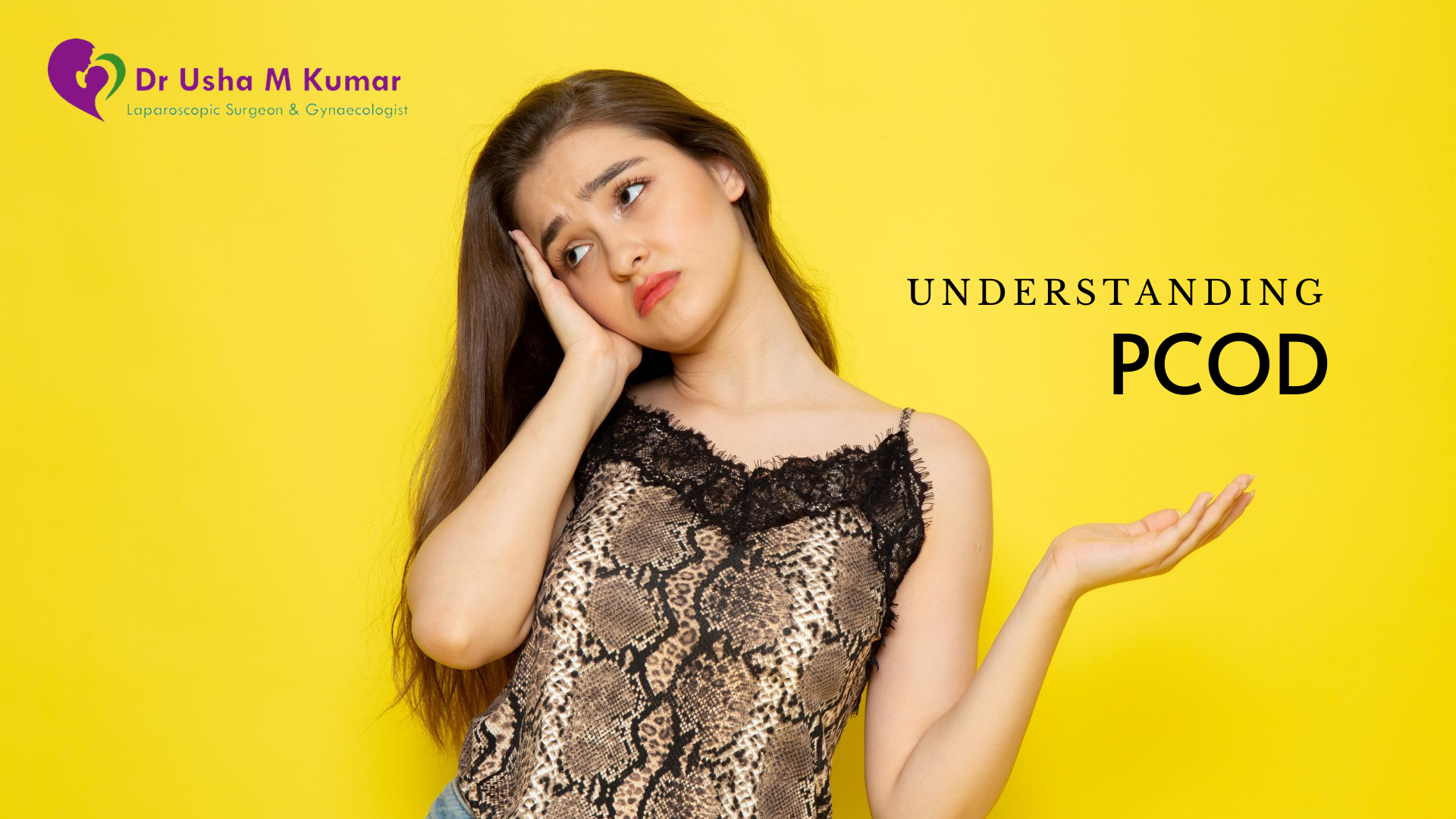
21 Jul Understanding Polycystic Ovarian Disease
Did you know Polycystic ovarian syndrome is a common health problem affecting 1 in 10 women? Poly Cystic Ovarian Disease is also known as Polycystic Ovarian Syndrome, PCOD, or PCOS in short. Globally, 4%-8% of women in the reproductive age group are suffering from this problem. The condition affects the endocrine system of the female which eventually impacts metabolic as well as cardiovascular health. Don’t let PCOS take over your life. Dr. Usha M Kumar is an expert Gynaecologist Laparoscopic Surgeon in Delhi. Being the best gynaecologist for PCOS, one of her specialist areas is polycystic ovary syndrome. Here, she helps you to have more clarity about PCOD/PCOS.
Menstrual disturbances, clinical signs of hyperandrogenism, and infertility are the common reasons for seeking medical help. Though 30% of women with PCOS will have normal menses most complain of lack of menstruation.
It is observed that nearly about 70% of women with PCOD have Hirsutism (a condition where hair growth is observed at the upper lip, chin/face, chest, back, abdomen, arms, and thighs.) The major health concern is infertility which affects 40% of women with PCOS.
What are the reasons for developing PCOD?
- A family history of PCOS is a risk factor and a high pervasiveness of PCOD saw in daughters if a mother has the same.
- Type 1, Type 2, and gestational diabetes have been associated with an increased prevalence of PCOS.
- Obesity is also noticeable as one of the primary causes of PCOD.
- It is observed that women with PCOS are also at increased risk of a number of mental health disorders including depression, bipolar disorder, anxiety, and eating disorders.
Treatment:
Hirsutism is related to PCOD. Physical signs and symptoms include acne, hair growth in unwanted areas, and alopecia. Usually, oral contraceptive pills (OCPs) are the first-line for pharmacologic management of hirsutism in premenopausal women. Today, women can opt for laser hair removal options to improve their cosmetic appearance.
There is a decrease in androgen levels by taking these medications under guided prescription. Experts advise that weight loss can also improve circulating androgen levels providing numerous other metabolic benefits for patients with PCOD.
A low-fat diet, regular exercise to reduce insulin resistance, high fiber, and moderate protein, is recommended to treat symptoms related to PCOD.
Conclusion:
It is observed that the treatment is focused on individual symptoms but not the syndrome itself. It is suggested that understanding the pathophysiology of PCOD by the patient will help them comply with all treatment suggestions.
An expert Gynecologist in Delhi, diet coach, as well as other therapy experts, are required to improve the overall wellbeing of women with PCOD.
Dr. Usha M Kumar, Gynaecologist at Max Hospital, Delhi is one such best gynaecologist for PCOS either through medicines or through surgery. She is not aiming to treat the patient for a short period of time but her entire goal is to completely change the life of the patient so that they should not face any difficulty in the near future.
Visit www.drushamkumar.com to consult the best gynecologist for the treatment of PCOS or call us @ 9999293741 for appointment booking.




Sorry, the comment form is closed at this time.